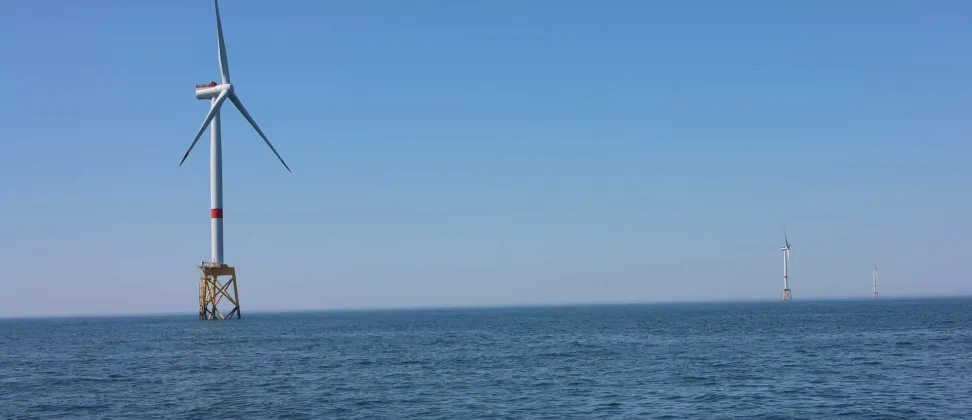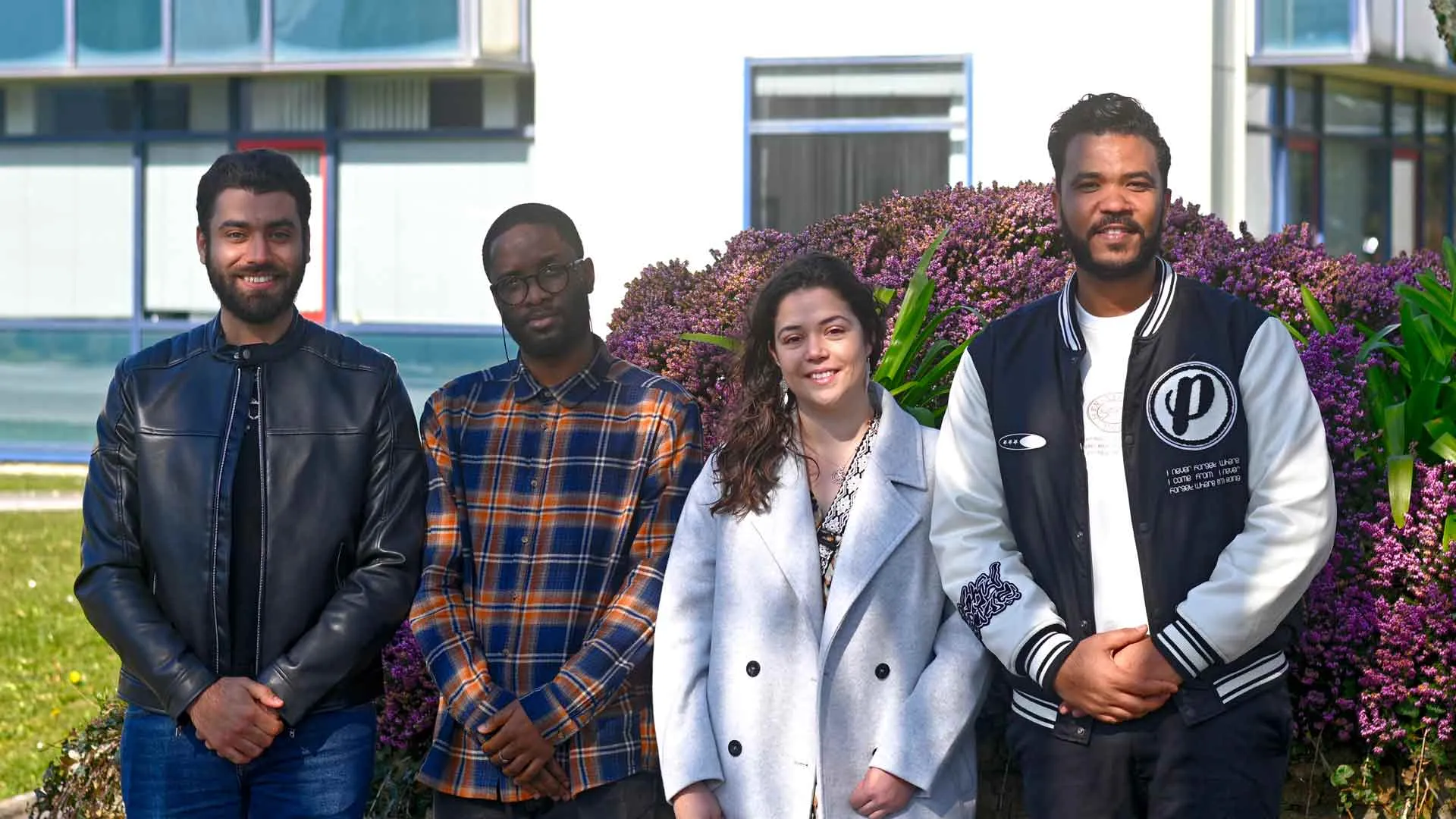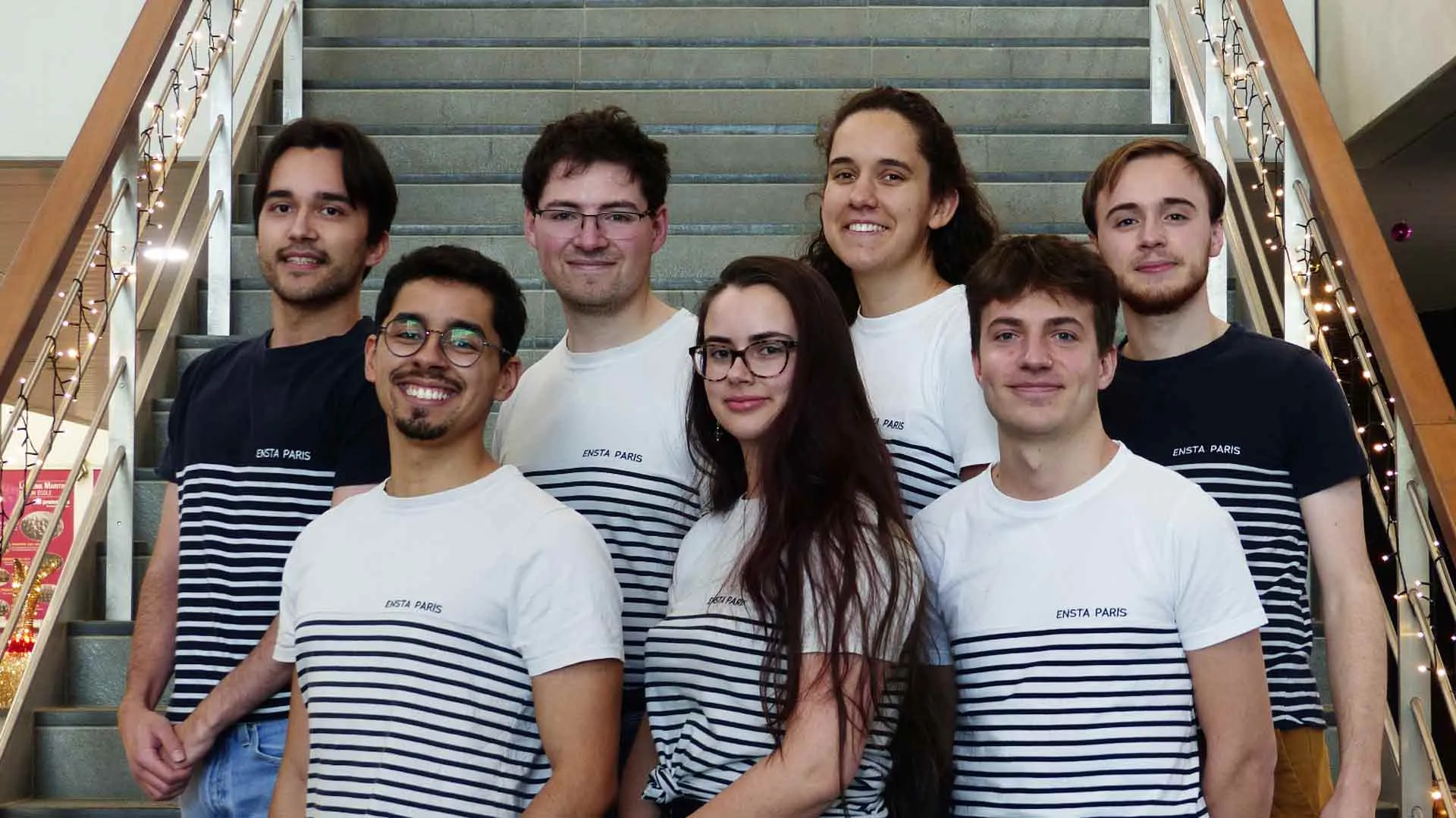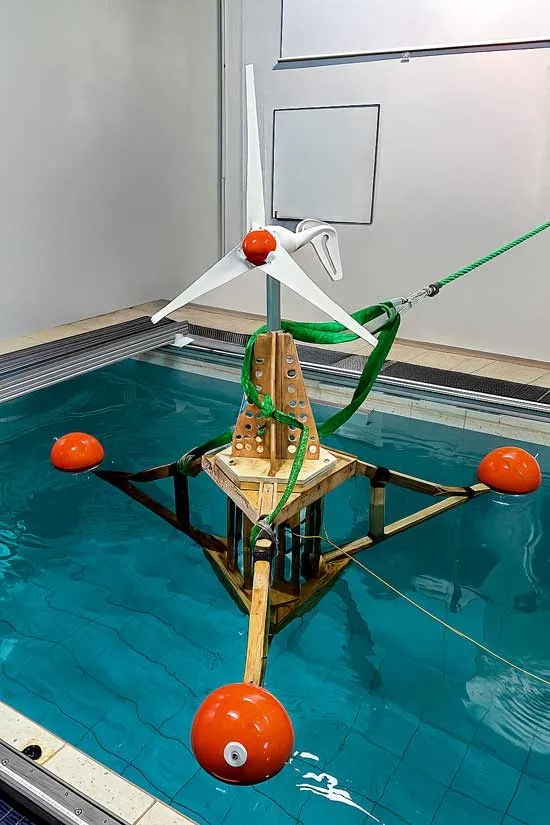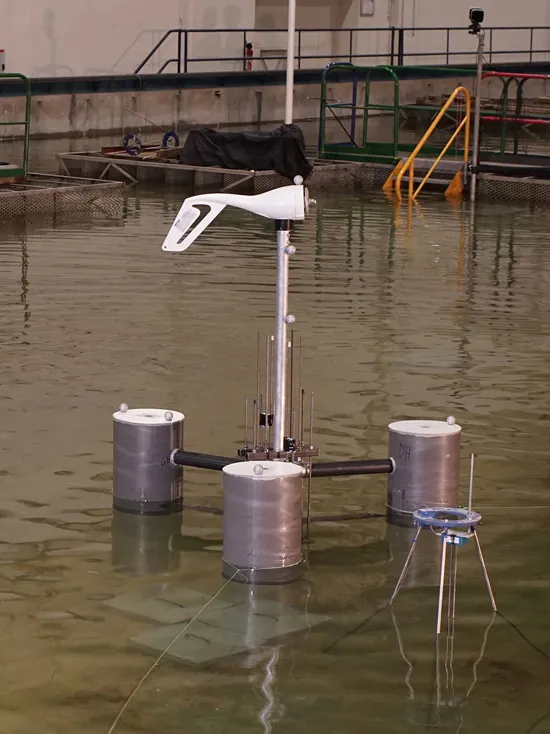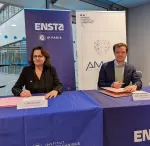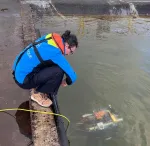In July, two teams of ENSTA students (from the Paris-Saclay and Brest campuses) will be in Zeebrugge, Belgium, to test their floating wind turbine prototypes. The two projects were selected as finalists in the international Floating Wind Challenge competition.
Raed Rezgui is a member of the Brest team training to become an expert in marine renewable energy. As project coordinator, he answered our questions.
For the Paris-Saclay team, Blandine Duprat, a final-year student on the ENSTA Paris general engineering program, answered our questions.
Comment se déroule le projet pour vos équipes ?
Raed Rezgui : Cette année, l’équipe brestoise "Taka 4 Ventis" est composée de quatre membres. La répartition des tâches s’est faite sur la base des compétences de chacun et autour des quatre axes principaux du projet :
- l’électronique,
- la mécanique et l’hydrodynamique,
- la structure,
- et l’étude économique.
La première étape clé a été la soumission de l’abstract, le 17 janvier, qui nous a permis de passer la phase de présélection. Nous avons été retenus parmi les 7 équipes finalistes sur 20, bénéficiant ainsi d’un financement de 1000 € pour la réalisation de notre prototype.
How is the project going for your teams?
Raed Rezgui: This year, the Brest team, “Taka 4 Ventis,” is made up of four members. Tasks were divided based on each person's skills and the four main areas of the project:
- electronics,
- mechanics and hydrodynamics,
- structure,
- and economic analysis.
The first key stage was submitting the abstract on January 17, which allowed us to pass the pre-selection phase. We were selected as one of the seven finalist teams out of 20, thereby receiving €1,000 in funding to build our prototype.
After the results were announced, the construction phase took place between February and early May. We finalized the structure, then wrote and submitted the technical report summarizing the various aspects of the project.
We are now preparing for the final phases, which will take place on July 8 and 9 in Zeebrugge.
The entire project has been very educational, both in terms of project management and from a technical standpoint:
We have acquired practical skills in the challenges of marine renewable energy (MRE), particularly offshore wind turbines and real-world testing. The experience has enabled us to work as a team and collectively tackle, at our level, the technological challenges of the offshore wind turbine sector.
Et pour « Eolita » ?
Blandine Duprat : Notre équipe « EoliTA » rassemble 7 étudiants. Elle a été créée dans le cadre du PIC, un projet tutoré de 3e année.
Encadrés par Luc Pastur, enseignant chercheur du laboratoire UME et Côme Reynaud, un diplômé ENSTA, ingénieur chez Eiffage Métal, nous avons lancé le projet en octobre 2024.
Après une phase de réflexion collective sur le concept de flotteur que nous voulions designer, nous nous sommes répartis les différentes études nécessaires à la bonne réalisation du projet (calcul statique et dynamique, étude de marché, choix des matériaux pour notre concept…). En parallèle nous avons réalisé une fiche de présentation de notre projet qui nous a permis de nous qualifier pour la compétition et d’obtenir un financement de 1000€ pour la construction de notre flotteur.
And what about “Eolita”?
Blandine Duprat: Our “EoliTA” team is made up of seven students. It was created as part of the PIC, a third-year tutored project.
Supervised by Luc Pastur, a lecturer and researcher at the UME laboratory, and Côme Reynaud, an ENSTA graduate and engineer at Eiffage Métal, we launched the project in October 2024.
After a phase of collective reflection on the concept of the float we wanted to design, we divided up the various studies necessary for the successful completion of the project (static and dynamic calculations, market research, choice of materials for our concept, etc.). At the same time, we produced a presentation sheet for our project, which enabled us to qualify for the competition and obtain €1,000 in funding for the construction of our float.
Once the theoretical studies were complete, we all worked in our spare time to build the float, with the help of Lahcène Cerfa, a technician at the UME, for the welding. At the end of our efforts, we submitted a detailed report on our work and our thoughts, along with a video of the tank tests we were lucky enough to carry out at EDF Lab Chatou.
After receiving constructive feedback from the competition, we are currently finalizing work on the structure so that we can test the installation in real conditions ahead of the competition.
Were you able to test your prototype?
Raed Rezgui: Unfortunately, the sea trials initially planned at Ifremer could not take place due to their teams' heavy workload. We therefore carried out our experimental tests in the ENSTA pool in Brest.
These tests mainly focused on stability, buoyancy (with a deliberate 45° tilt), and measuring the natural period in pitching (the effect of waves). All the tests were successful: the structure demonstrated excellent stability and performed as expected.
Blandine Duprat: The first challenge we faced was starting the project from scratch, as we are the first team from the former ENSTA Paris to participate. Côme Reynaud's experience in designing offshore structures was a great help in getting the project off the ground. What's more, reconciling our schedules during our end-of-study internships at the end of the project is not easy, but we are now in the home stretch and are confident and motivated to deliver a functional float for the final in Belgium.
How do you see the FWC 2025 challenge?
Raed Rezgui: We are extremely enthusiastic and have high ambitions! We will all be in Zeebrugge at the beginning of July, ready to take up the challenge. I would like to mention the support of Mr. Marc Le Boulluec, one of our teachers who works at Ifremer, without whom this project would never have seen the light of day. He has supported us from the very beginning and we are very grateful to him.
Blandine Duprat: We are looking forward to participating in the final of the competition. This week promises to be very rewarding, both on a human and technical level. Six members of the team will be present. We are eager to meet the other participants and present our work to professionals from the offshore energy industry.

